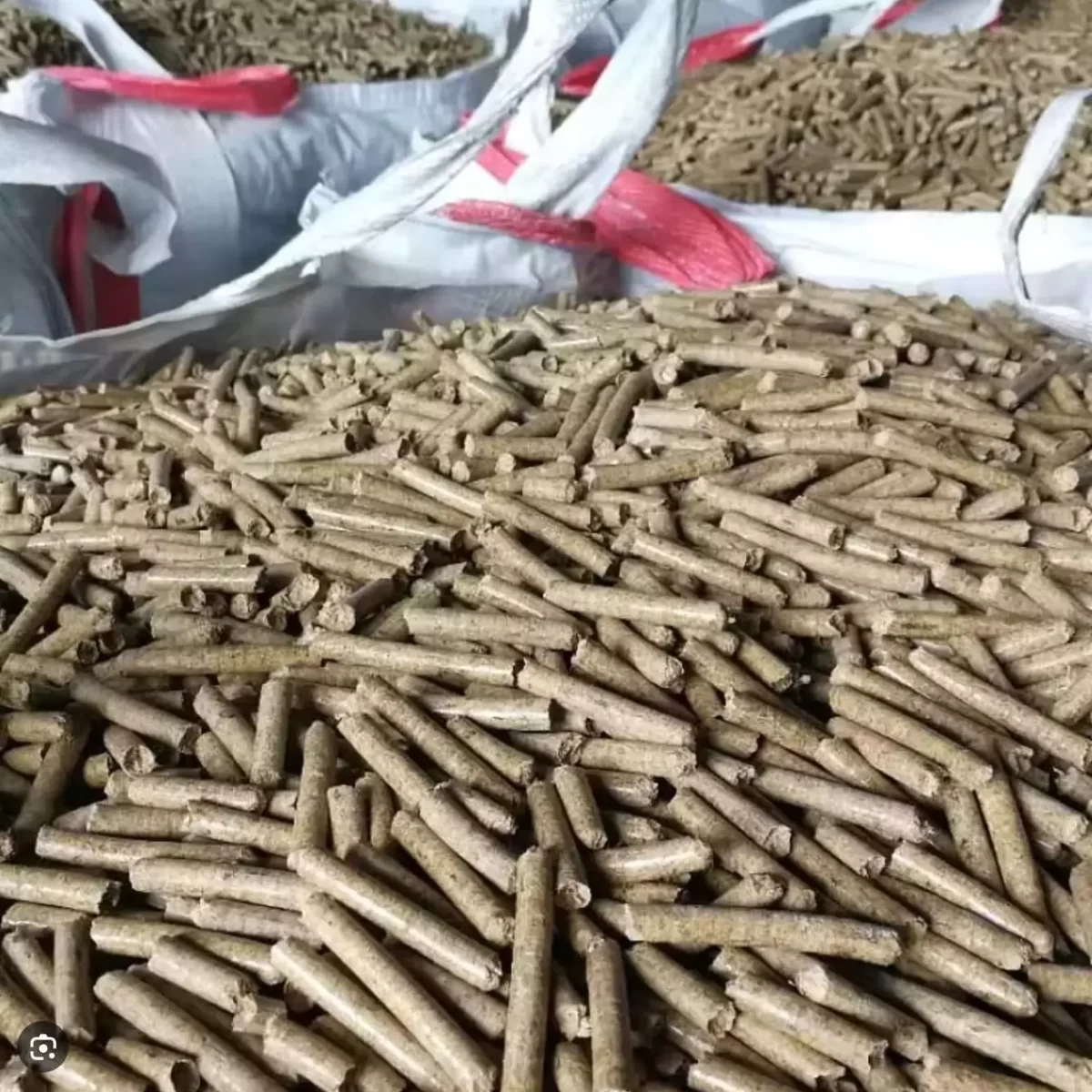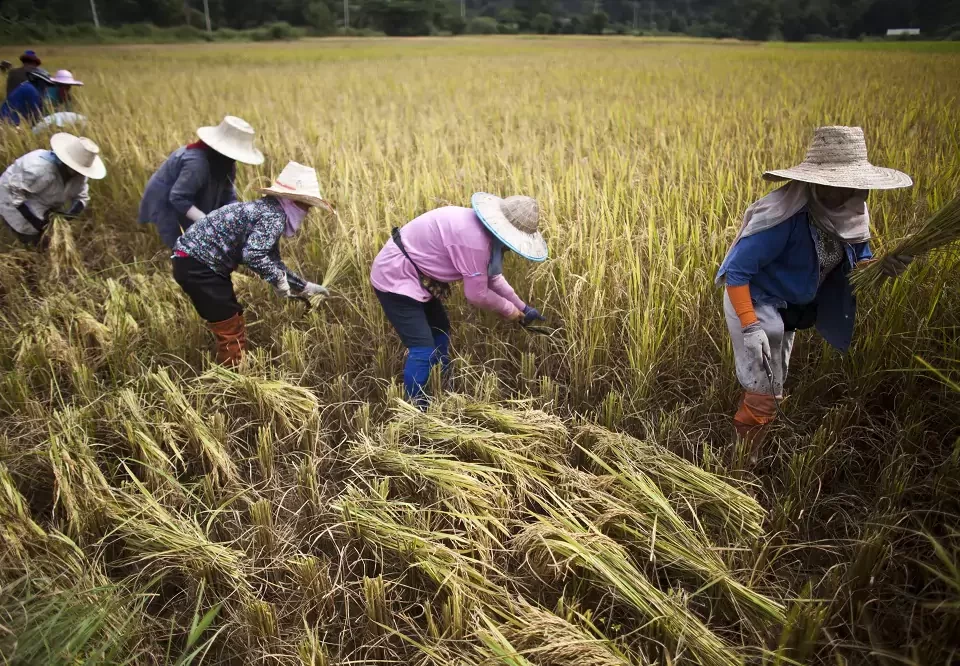Trấu viên 6-8 mm Rice husk pellets A1,A2 Vietnam Natural 100%

Những loại củi trấu phổ biến hiện nay
26/03/2024
Tro trấu trong bê tông -Tính chất, ưu điểm và công dụng trong xây dựng
29/03/2024Rice husk pellets (Vietnamese: Trấu viên, viên nén trấu )offer an innovative and sustainable alternative for various applications, including home fireplaces. Let’s explore how rice husk pellets are utilized:
Indowud NFC Boards: These boards are made from recycled rice husk pellets and serve as a substitute for traditional wood. Here are some remarkable features of Indowud NFC boards:
Termite-proof, waterproof, and flame retardant.
100% recyclable and environmentally friendly.
Can be molded and shaped into desired forms.
Suitable for furniture and exterior applications.
Energy Production: Rice husk contains organic carbon and has a high heat value. It can be used to generate fuel, heat, or electricity through thermal, chemical, or bioprocesses.
Biomass Briquettes: These briquettes, also known as green charcoal, are made from organic materials like rice husk. They are cheap, produce low smoke, low ash, and almost no odor. They serve as an excellent alternative fuel for fire pits and fireplaces.
Pellet Stoves and Fireplace Inserts: If you have an existing wood fireplace, consider using a pellet insert. It slides into the current fireplace space, providing efficient heating without major renovations.
So, next time you’re cozying up by the fireplace, remember that rice husk pellets contribute to both comfort and sustainability!
What are the benefits of using rice husk pellets?
Certainly! Rice husk pellets offer several advantages, making them a valuable choice for various applications. Let’s explore their benefits:
Low Cost, High Energy: Rice husk pellets are an economical fuel option. They provide high energy output while being cost-effective.
Increased Boiler Life: Due to their low ash content, rice husk pellets help extend the lifespan of boilers and combustion equipment.
Convenient Transportation: The pellets have a higher density after compression, making them easy to transport in bulk.
Ease of Use and Cleaning: Rice husk pellets are simple to handle, ignite, and maintain. They also require minimal cleaning compared to other fuels.
Space-Saving: Storing rice husk pellets takes up less space, making them a practical choice for both residential and industrial use.
Environmental Friendliness: These pellets do not pollute the air or environment because no additives are used during production. They are a clean and sustainable energy source.
Ash Utilization: The ash produced from burning rice husk pellets can serve as raw material for other industries, such as steelmaking and cement manufacturing.
In summary, rice husk pellets combine affordability, efficiency, and environmental benefits, making them an excellent alternative fuel choice!
How are rice husk pellets produced?
Rice husk pellets are produced through a series of steps, transforming rice husks into a valuable and sustainable fuel source. Let’s delve into the production process:
Screening and Impurity Removal:
Initially, impurities like rocks and iron are removed from the rice husks.
This ensures that the subsequent processing steps are efficient and the final pellets are of high quality.
Pelleting:
The treated rice husks are transported to a silo.
From there, they are fed into a pellet machine where they undergo compression to form pellets.
Pelleting increases the density of rice husks, making them easier to transport and store.
Cooling:
After pelleting, the rice husk particles are at a high temperature due to the compression process.
To maintain their shape and prevent deformation, the pellets are cooled using a specialized cooler.
In summary, the production process involves screening, pelleting, and cooling, resulting in rice husk pellets that burn cleaner, have reduced ash content, and offer moderate calorific value—suitable for large boilers and other energy applications. These pellets contribute to sustainability by utilizing a renewable biomass resource!
What are the typical dimensions of rice husk pellets?
Rice husk pellets come in various dimensions, and their size can vary based on production methods and intended use. Here are some typical dimensions:
Average Diameter: Rice husk pellets typically have an average diameter of around 4 mm to 8 mm. This compact size ensures efficient combustion and handling.
Average Length: The average length of a rice husk pellet is approximately 28.7 mm. However, lengths can vary, and some sources mention lengths of up to 50 mm.
Weight: On average, a single rice husk pellet weighs approximately 1.8 grams.
Bulk Density: The bulk density of rice husk pellets after compression increases significantly. It ranges from 340 kg/m³ to 511 kg/m³.
Remember that these dimensions may vary slightly based on production techniques and specific pellet mills. Rice husk pellets offer a sustainable and efficient energy source, making them a valuable choice for various applications!
How do these dimensions compare to other biomass pellets?
Certainly! Let’s compare the dimensions of rice husk pellets to other biomass pellets:
Rice Husk Pellets:
Diameter: Typically around 4 mm to 8 mm.
Length: Approximately 28.7 mm on average.
Weight: Each pellet weighs approximately 1.8 grams.
Standard Biomass Pellets (e.g., wood pellets):
Diameter: Usually 6 mm to 8 mm.
Length: No more than 38 mm.
Larger pellets (more than 25 mm in diameter) are sometimes referred to as “briquettes”.
In summary, rice husk pellets fall within the typical size range for biomass pellets, making them suitable for efficient combustion and handling. Remember that specific dimensions may vary based on production methods and intended use!
Necessity of Rice Husk Pellet Production in Vietnam
Vietnam is a significant producer of rice husk pellets, utilizing this abundant agricultural byproduct for various purposes. Let’s explore the details:
Abundant Raw Materials: Vietnam is the second-largest rice exporter globally and a substantial consumer of rice. Consequently, it produces vast quantities of rice husk. In 2014, approximately 9 million tonnes of raw husk were available.
Stable Supply: Rice husk production remains stable throughout the year due to the supply chain in the paddy market.
Current Use: Presently, rice husk is used for domestic cooking (15%), as fuel for brick kilns (40-50%), in power plants (10%), and for briquettes (20-25%). However, there’s ongoing work to develop rice husk pellets as an alternative to direct combustion1.
Superior Biomass Fuel: Rice husk boasts rich crude fiber content, lignocellulose, cellulose (40%), and hemicelluloses (5%). Its caloric value is about 14 MJ/kg, equivalent to 35% of diesel or bunker oil’s caloric value1.
Pellet Production Facilities in Vietnam:
Vietnam hosts around 80 pellet factories and production facilities, primarily in the southeastern and northeastern regions.
These facilities have a combined capacity of nearly 4.5 million tonnes per year.
Global Demand and Prospects:
The global demand for pellets is projected to increase by approximately 250% over the next decade, reaching 36 million tonnes by 2030.
In summary, Vietnam’s rice husk pellet production is not only economically viable but also contributes to environmental sustainability.
Phu Thanh Company is a reputable manufacturer of rice husk firewood in the West, specializing in providing green and clean fuels such as: rice husk wood pellets or rice husk pellets, rice husk firewood bars, crushed rice husk firewood, crushed rice husk, and mulch firewood. pressed saw or wood pellets. All needs from small to large quantities, stable supply, Phu Thanh rice husk firewood factory serves all your needs.
Please contact us immediately for a good quote and long-term cooperation:
Phu Thanh Energy Production Trading Company Limited
Factory: Bao Mai Port, Highway 54, Tan Thanh is a commune, Lai Vung District, Dong Thap Province, in the Mekong Delta region of Vietnam.
Email: [email protected]
Website: https://cuitrauvien.com
HOTLINE/ZALO 1: 0903.680.685
HOTLINE/ZALO 2: 0909.360.528






